
How Coronavirus Pandemic Could Expand China’s Footprint In Turkey[1]
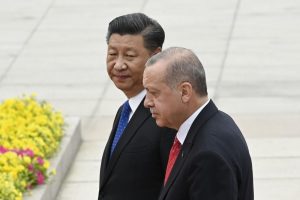
Turkish President Recep Tayyip Erdogan and Chinese President Xi Jinping are pictured in Beijing in July 2019 (AFP)
Ankara’s relations with Beijing, frosty for decades, have improved rapidly in recent years as Turkey has gravitated away from its Nato partners
In 2019, China extended a $1bn swap line to Turkey after US sanctions pushed the lira into freefall the previous summer.
[1] Rupert Stone, 21.05.2020, www.middleeasteye.net.
Russia. Now, as Turkey’s economy collapses and tensions with Washington persist, it may be forced to rely even more on China’s support.
In 2010, the Chinese premier visited Ankara and concluded a strategic cooperation agreement. Since then, trade has increased significantly, with a flurry of big-ticket infrastructure deals. Erdogan has visited Beijing a number of times, including in 2017 for a large international forum devoted to China’s Belt and Road Initiative (BRI).
Trans-Eurasian connectivity
The BRI links Europe and Asia through a vast network of rail and maritime routes. Given its geographical location between east and west, Turkey is well-placed to play a role, and some of its own infrastructure plans align with China’s grand vision of trans-Eurasian connectivity. The Middle Corridor transport project, for example, connects Turkey with Central Asia by rail and ferry.
In a 2015 memorandum, Erdogan and his Chinese counterpart, Xi Jinping, agreed to integrate that initiative into the BRI. And there has been progress developing the Middle Corridor, with a Baku-Tblisi-Kars railway coming online in 2017. The first train to cross from China to Europe along the corridor transited through Istanbul’s Marmaray tunnel late last year.
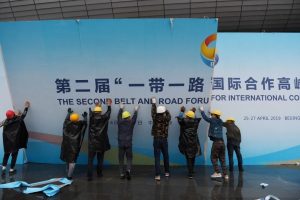
Workers take down a Belt and Road Forum panel outside the venue of the forum in Beijing in April 2019 (AFP)
Then there are ports. In 2015, a Chinese consortium purchased Kumport, Turkey’s third-largest container terminal, near Istanbul, and three more ports are being eyed at Mersin, Candarli and Filyos. Chinese companies are reportedly keen to participate in Erdogan’s controversial Kanal Istanbul project, which will open up a new waterway to rival the Bosphorus.
A Chinese consortium also bought the Yavuz Sultan Selim Bridge over the Bosphorus and its associated motorway, connecting Istanbul to the new airport. The Industrial and Commercial Bank of China was in talks to refinance loans worth around $6bn for the operation of the airport. It has also pledged $3.6bn in loans for Turkey’s transport and energy sectors.
China is involved in Turkey’s nuclear development, building its third power plant. On the telecoms front, Chinese tech giant Huawei is constructing a 5G network and has a research and development centre in Istanbul – its second-biggest in the world – while ZTE purchased Turkish company Netas several years ago. In the realm of e-commerce, Alibaba bought a stake of Turkey’s online retailer, Trendyol, in 2018.
The content of this article is intended to provide a general guide to the subject matter. Specialist advice should be sought about your specific circumstances.
If you have any questions, please contact us
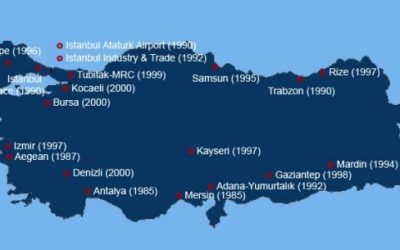

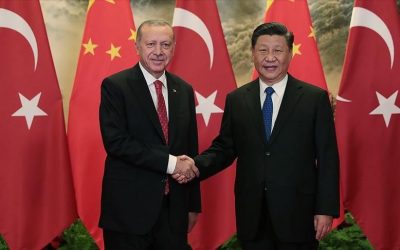


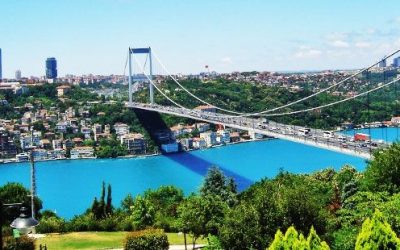
Recent Comments